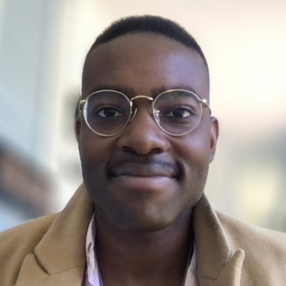Talent Scout
Kadeem Noray, PhD '23

Research at Risk: Since World War II, universities have worked with the federal government to create an innovation ecosystem that has yielded life-changing progress. Now much of that work may be halted as funding is withdrawn. Find out more about the threats to medical, engineering, and scientific research, as well as how Harvard is fighting to preserve this work—and the University's core values.
Labor economist Kadeem Noray is a postdoctoral fellow at the National Bureau of Economic Research where he focuses on how selective organizations and institutions identify who to hire. Noray discusses his current work on ways to recruit diverse pools of high-potential applicants, his unconventional academic path, and how he discovered the joy of research at Harvard.
Screening in Diversity

The focus of my research is talent selection or the ways in which different organizations choose who they hire and admit. I’m currently working with a prestigious youth talent investment program, which was established to find talented youth around the world and invest in them so they could realize their full potential. The program has various ways to screen for talent—from more traditional intelligence tests to video essays and nomination processes. Additionally, applicants have to complete a project that gets evaluated by experts; for example, make an app and have software engineers critique it. I’m trying to help the organization figure out how to screen applicants who have high potential.
For our research, we decided to not use any of the screening information until we saw the applicants’ projects. Then we went back and looked at what would have happened had we screened out people based on poor test performance or low-quality referrals. We found that we would have screened in applicants whose projects were somewhat better than average compared to the overall pool but who were substantially less diverse. There were fewer people from poor countries, there were fewer women, there were fewer people from economically disadvantaged backgrounds. Moreover, many of the people who were screened out produced projects that were quite impressive.
As an experiment, we had applicants make their own judgments on the quality of other applicants. When we used that guidance in screening instead of using traditional information, the quality of people screened in didn’t decline and diversity increased substantially. Peers tend to be less biased than traditional criteria against people from poor backgrounds or countries. Taking humans out of the screening process can have some surprising costs, and you might miss out on people who are marginally lower on certain metrics but ultimately have very high potential.
Hidden Potential
I have an interesting relationship with the educational system in the United States. I was a really bad student until I read a book called Basic Economics before my sophomore year in high school. I was fascinated. I wanted to be someone who produced knowledge.
I started taking advanced placement courses. I tried much harder in school. I became an above-average student while taking more and more difficult classes. The data that the school system had on me until my sophomore year would have suggested that I was not someone of high academic potential. But it turned out that I did have a lot of potential. It was just hidden.
Dynamic and Fun
At Harvard Griffin GSAS, my advisor was Professor David Deming. He and I published a paper together a couple of years ago. Working with him helped me understand what the research process really entailed.
I remember when we were trying to finish the paper. We worked all day on a Saturday—went out to lunch, talked about the project, and went back to his office. I was at the whiteboard working on the model, and he was at his laptop analyzing data. Occasionally, I would get to a point where I was stuck and ask him what he thought. He would throw out some suggestions. Then he would show me results from his laptop on the empirical component, and we would talk about it.
There was something very dynamic, fun, and social about that experience. I didn’t know research could be like that. As a graduate student, you fail a lot if you’re working on your own. I realized that when I’m working with somebody who shares my interests and with whom I feel comfortable communicating, doing research can be enjoyable. It makes it worthwhile to push through a lot of failures to get to success.
Get the Latest Updates
Join Our Newsletter
Subscribe to Colloquy Podcast
Simplecast





